Dumbledore Is So Gay at Southwark Playhouse
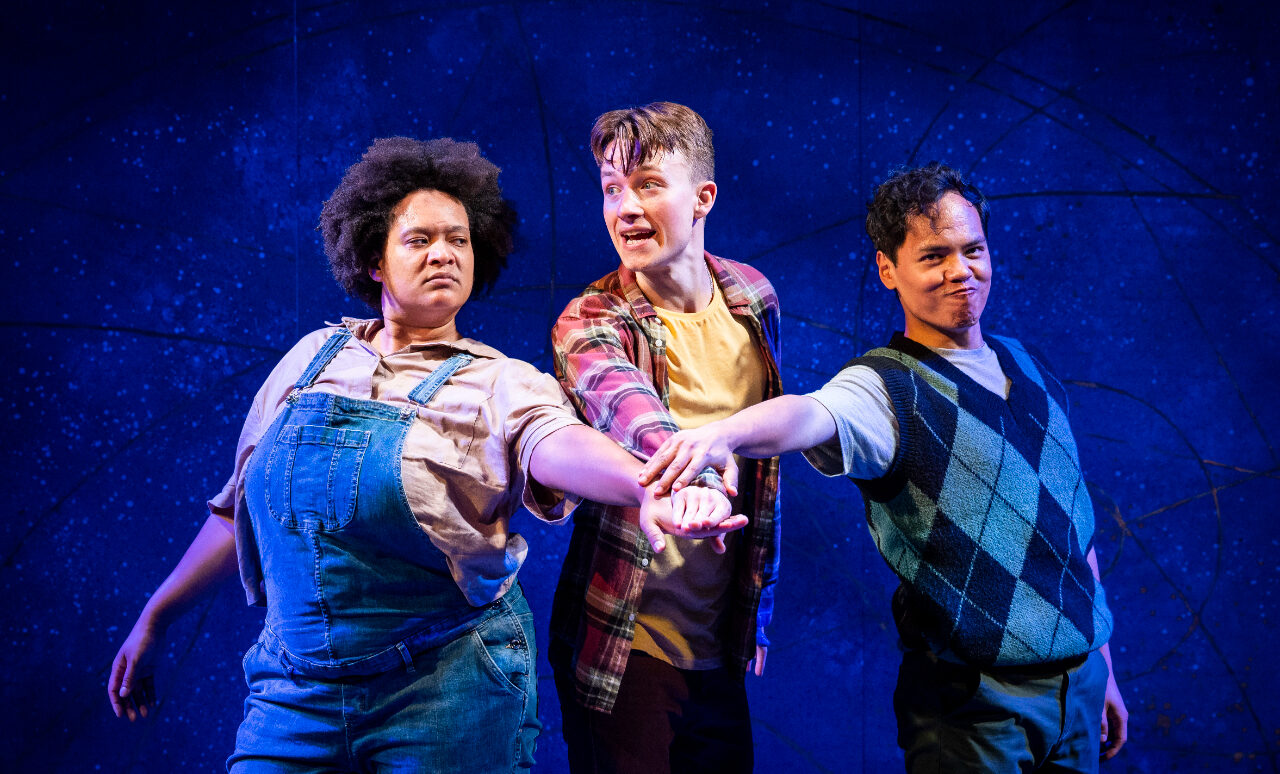
If there is a surefire way to get an audience of 20-to-30-somethings, plus their parents, on side, it is with unabashed, healthy helpings of Harry Potter-themed banter. “I’ve got to tell you something…,” protagonist Jack reveals to the audience, as climactic music builds, his face scrunching with anticipation.“I’m a Hufflepuff!” The audience rings with knowing, sympathetic laughter: no one wants to be a Hufflepuff, not really. Dumbledore Is So Gay follows Jack’s tween-to-teen journey through identity, love and friendship, accompanied by sidekicks Ollie and Gemma, and assisted by a handy, somewhat familiar device used to turn back time…
Writer Robert Holtom succeeds in exchanging uproarious humour with the hard-hitting, bigoted realities of the 00s so swiftly that the audience barely registers the shift. The pervasive, pernicious culture of homophobic classroom insults is immediately portrayed, with flustered French teacher Madame Dubois struggling to keep a handle on the noise levels, let alone attempt to explain why the increasingly outlandish variations of “dick-muncher” are as dangerous as they are foolish.
It is the 2000s, and the use of “gay” as an insult is as prevalent as the low-rise jeans trend. Jack heartbreakingly explains that the effect is like “drops of sulfuric acid on his skin”. The audience sees that the blatant homophobia follows him home, where his Dad, Martin, grumbles when that “poof” Graham Norton is on TV. Sally, his wife, assures him that “he’s just Irish!”, but she switches to Eastenders, Holtom employing popular cultural references to keep the family dialogue peppy throughout.
The main story arc hinges on Jack’s tumultuous relationship with his best friend Ollie; they fall in love, but family prejudice and Ollie’s fear of peer rejection mean that all does not go to plan. Jack fights for a happier ending, the play’s magical core lending him a second, and then third, chance at the most ungainly chapter of life – growing up. Physical theatre is employed brilliantly; the trio tumble through the space, and backwards in time, with exaggerated, spell-conjuring gestures, the audience’s adrenaline levels urged higher by Peter Wilson’s pumping score.
Actors Charlotte Dowding and Martin Sarreal are unwaveringly committed to their varied, multi-rolled duty. A farcical highlight is Dowding raising her eyebrows at the audience when realising she must simultaneously play Jack’s friend Gemma and his mother Sally. She proceeds to hop into opposite positions, ingeniously portraying Sally’s befuddlement when Gemma explains that she has actually started dating herself.
In the third variation of the story, Holtom asks the audience to consider a world where queer role models are championed, families are committed to learning and Madame Dubois pioneers an LGBTQ+ society with Jack and Ollie. As well as societal development, here Jack undergoes an important realisation that his well-being and identity should not solely depend on a romantic relationship. It is a satisfying blossoming of personal and bigger-picture themes.
Dumbledore Is So Gay feels like a tangy prequel to Netflix’s wholesome teen drama Heartstopper; it is rare to see a show which is heartbreaking, heartwarming and hilarious in equal measure. As the 75 minutes conclude by looking to the future, the audience springs to their feet, glowingly appreciative of witty dialogue fused so effectively with a crucial message. The fizzy feeling when leaving the auditorium is some kind of magic.
Ellen Wilkinson
Images: David Jenson
Dumbledore Is So Gay is at Southwark Playhouse from 16th August until 23rd September 2023. For further information or to book visit the theatre’s website here.

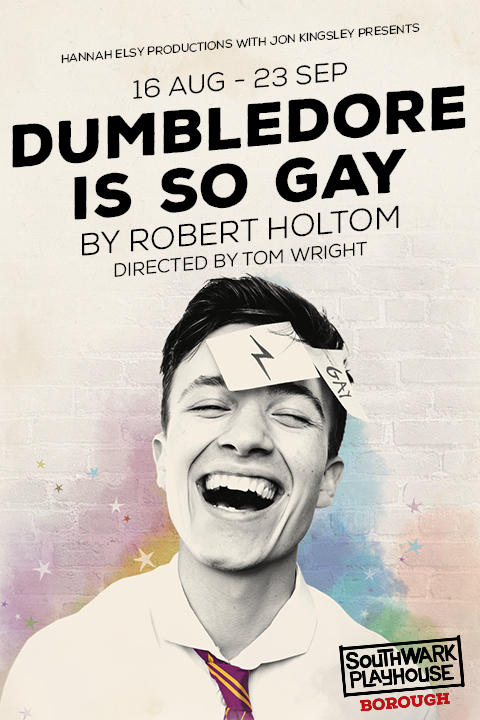
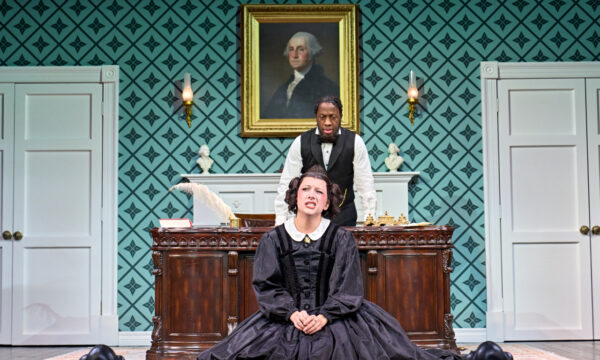
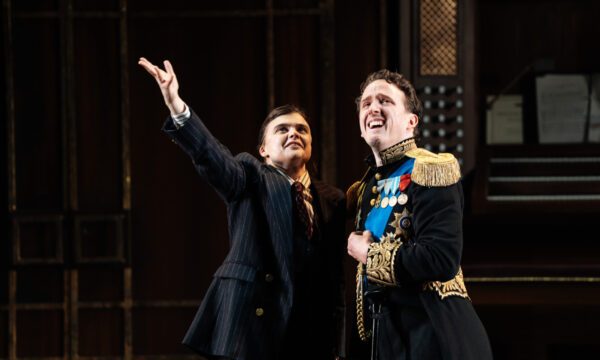

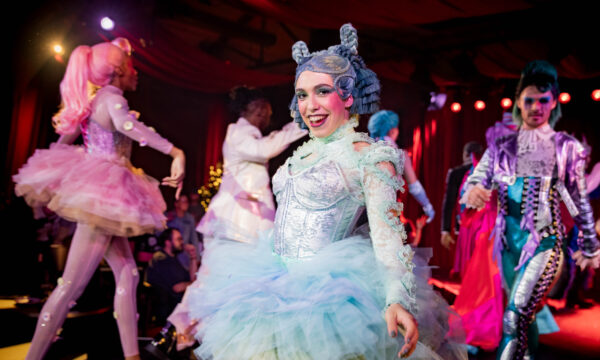
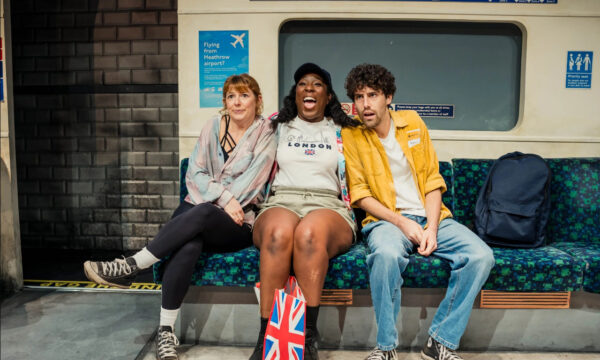
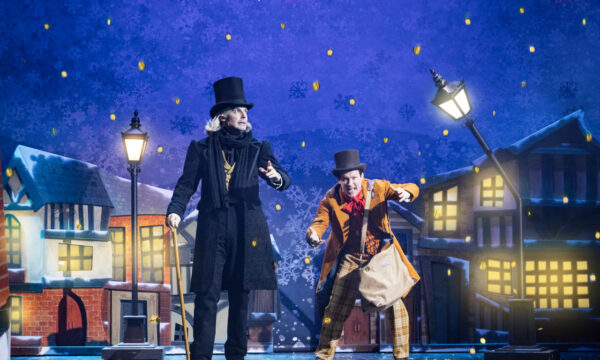
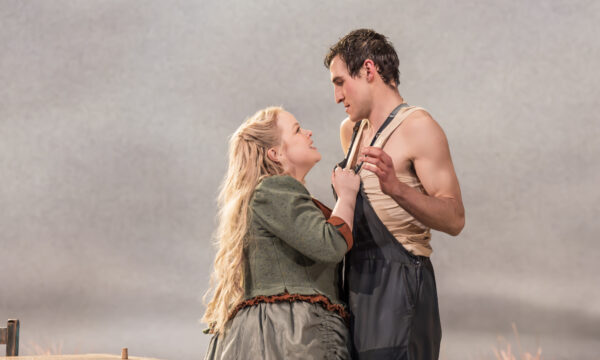

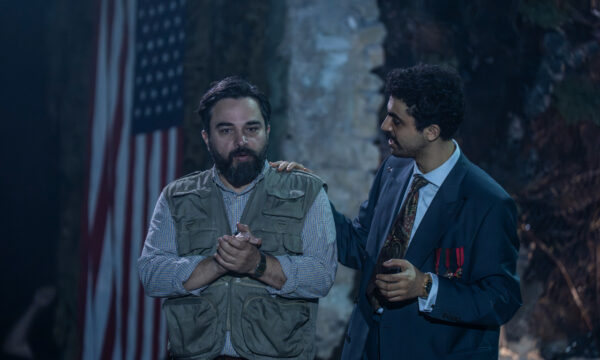
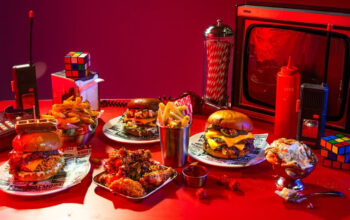
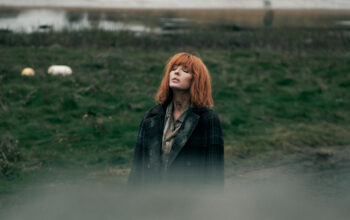

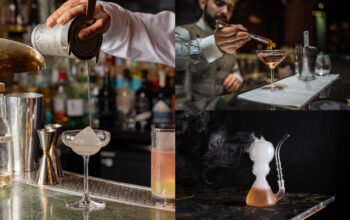


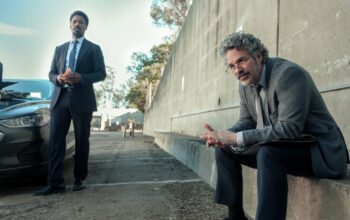


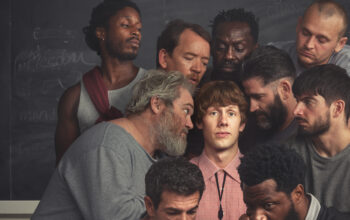
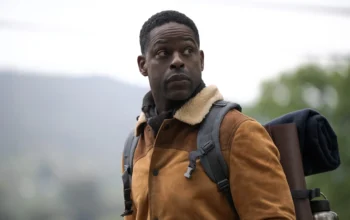

Facebook
Twitter
Instagram
YouTube
RSS